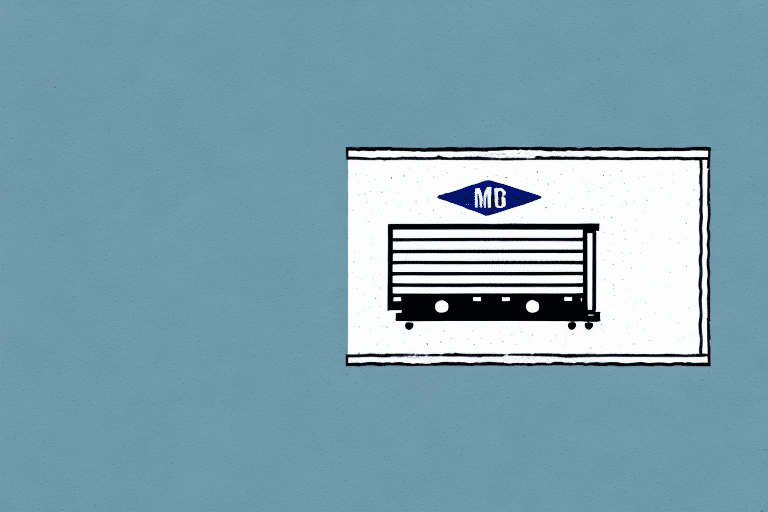What Is a Freight Surcharge and How Does It Affect Your Shipping Costs?
Freight surcharges are additional fees applied to the standard shipping rates to cover unexpected or variable costs that carriers encounter during the transportation process. These surcharges help carriers manage fluctuations in operational expenses, ensuring that they can maintain reliable service despite changes in the economic landscape. Understanding freight surcharges is essential for businesses aiming to optimize their shipping strategies and control overall logistics costs.
Understanding the Basics of Freight Charges and Surcharges
Freight charges are the primary costs associated with transporting goods from one location to another. These charges are typically calculated based on weight, volume, distance, and the mode of transportation used (e.g., air, sea, or ground). In addition to the base freight charge, carriers often impose various surcharges to account for specific factors that affect the cost of shipping.
Common Types of Freight Surcharges
- Fuel Surcharges: Adjustments based on fluctuating fuel prices. For example, a study by the American Carriers Expert indicates that fuel surcharges can account for up to 20% of total shipping costs.
- Residential Delivery Surcharges: Additional fees for deliveries made to residential addresses rather than commercial locations.
- Peak Season Surcharges: Higher charges during periods of increased demand, such as the holiday season.
- Hazardous Materials Surcharges: Extra costs for transporting dangerous goods that require special handling and compliance.
- Dimensional Weight Surcharges: Fees based on the size of the package rather than its weight.
The Different Types of Freight Surcharges Explained
Freight surcharges vary widely depending on the carrier and the specific circumstances of the shipment. Each surcharge addresses a particular aspect of the shipping process that impacts the carrier's costs.
Fuel Surcharges
Fuel surcharges are among the most prevalent types of freight surcharges. They are calculated as a percentage of the base shipping rate and adjust in response to changes in fuel prices. According to the U.S. Bureau of Labor Statistics, fuel prices have a direct correlation with transportation costs, making fuel surcharges a necessary mechanism for carriers to manage volatility.
Peak Season Surcharges
During high-demand periods, such as the holiday season, carriers may impose peak season surcharges to cover the costs of additional staff, expedited services, and increased operational demands. This surcharge helps maintain service levels despite the surge in shipment volumes.
Hazardous Materials Surcharges
Transporting hazardous materials requires special handling, regulatory compliance, and additional safety measures. As a result, carriers apply hazardous materials surcharges to account for these extra responsibilities and risks.
Dimensional Weight Surcharges
Dimensional weight surcharges are applied to shipments where the size of the package impacts the carrier's capacity and logistics. This surcharge ensures that carriers can efficiently manage space and resources.
Why Are Freight Surcharges Applied?
Freight surcharges are implemented to compensate carriers for various costs that are not covered by the standard freight rates. These can include:
- Fluctuating Fuel Prices: As fuel costs rise or fall, surcharges help carriers adjust accordingly without renegotiating base rates.
- Unexpected Shipment Volume Changes: Sudden increases in shipment volumes can strain resources, and surcharges help manage these fluctuations.
- Special Handling Requirements: Shipments that require refrigeration, oversized packaging, or other special conditions incur additional costs reflected in surcharges.
Understanding the rationale behind these surcharges allows businesses to better plan and budget for their shipping expenses.
The Impact of Fuel Price Fluctuations on Freight Surcharges
Fuel costs are a significant component of transportation expenses, often accounting for up to 30% of a carrier's total operating costs. Fluctuations in fuel prices can therefore have a substantial impact on shipping costs. Carriers adjust fuel surcharges in response to these changes to maintain profitability and service levels.
For instance, a recent report by the International Energy Agency highlights how global oil price volatility directly affects transportation costs worldwide. By linking fuel surcharges to fuel price indices, carriers can transparently pass on the costs to customers, ensuring stability in their financial operations.
How to Calculate Freight Surcharges for Your Shipments
Calculating freight surcharges involves understanding the specific factors that influence the additional costs. Here's a general approach to calculating these surcharges:
- Identify Applicable Surcharges: Determine which surcharges apply to your shipment based on its characteristics (e.g., fuel, residential delivery, hazardous materials).
- Understand the Calculation Method: Each surcharge has its own formula. For example, fuel surcharges are often a percentage of the base rate, while dimensional weight surcharges are based on the package's size.
- Gather Necessary Data: Collect information such as fuel price indices, shipment weight and dimensions, delivery location, and any special handling requirements.
- Apply the Surcharges: Use the carrier's surcharge formulas to calculate the additional fees and add them to the base freight charge.
For precise calculations, consult the carrier's official surcharge policies or use their online calculators, if available.
Tips for Negotiating Lower Freight Surcharges with Carriers
While freight surcharges are often unavoidable, businesses can employ strategies to negotiate lower fees and mitigate their impact on shipping costs:
- Volume Discounts: Carriers may offer reduced surcharges for businesses that ship large volumes regularly.
- Long-Term Contracts: Committing to long-term partnerships can provide leverage to negotiate more favorable surcharge terms.
- Optimize Shipping Practices: Consolidating shipments, reducing package dimensions, and selecting cost-effective shipping times can lower applicable surcharges.
- Leverage Technology: Implementing logistics software can help optimize routes and improve shipment efficiency, potentially reducing surcharges.
Effective negotiation requires a clear understanding of your shipping patterns and a proactive approach to managing carrier relationships.
The Role of Carrier Contracts in Managing Freight Surcharges
Carrier contracts play a crucial role in managing freight surcharges by establishing clear terms and conditions for their application. Key elements of carrier contracts related to surcharges include:
- Defined Surcharge Rates: Contracts should specify how surcharges are calculated and the circumstances under which they are applied.
- Rate Locks: Agreements may include clauses that lock in surcharge rates for a specified period, providing cost predictability.
- Performance Metrics: Contracts can outline service level expectations, ensuring that carriers maintain quality service while applying surcharges.
By meticulously reviewing and negotiating carrier contracts, businesses can secure more stable and transparent surcharge arrangements, thereby enhancing their overall logistics planning.
Strategies for Mitigating the Effects of Freight Surcharges on Your Business
Freight surcharges can significantly impact a business's bottom line, but there are effective strategies to mitigate these effects:
Optimize Shipping Schedules
Adjusting shipping schedules to off-peak times can help avoid peak season surcharges. Planning ahead and anticipating high-demand periods allow businesses to distribute their shipping needs more evenly throughout the year.
Efficient Packaging Methods
Reducing the size and weight of shipments can decrease dimensional weight surcharges and overall shipping costs. Investing in space-efficient packaging solutions can lead to substantial savings.
Explore Alternative Transportation Modes
Depending on the nature of the shipment, alternative transportation modes such as rail or sea freight may offer cost advantages and lower surcharges compared to traditional air or ground shipping.
Negotiate Better Rates
As mentioned earlier, negotiating with carriers for better rates based on volume, long-term commitments, or other favorable terms can help reduce the impact of surcharges.
Implement Advanced Shipping Technologies
Using technologies like transportation management systems (TMS) can enhance visibility into shipping operations, allowing for more informed decision-making and efficient management of surcharges.
The Future of Freight Pricing: Trends and Predictions for Shipping Costs
The landscape of freight pricing is evolving, influenced by technological advancements, economic factors, and shifting consumer expectations. Key trends and predictions include:
Increased Use of Data Analytics and AI
Data analytics and artificial intelligence are set to revolutionize freight pricing by enabling more accurate demand forecasting, route optimization, and dynamic pricing models. This can lead to more efficient shipping processes and potentially lower surcharges.
Focus on Sustainability
With growing environmental concerns, carriers and businesses are increasingly prioritizing sustainable shipping practices. This includes the adoption of alternative fuels, electric vehicles, and optimized routing to reduce carbon emissions. While initial investments may increase costs, long-term benefits include cost savings and improved brand reputation.
Automation and Robotics
The integration of automation and robotics in warehouses and transportation hubs can enhance operational efficiency, reduce handling times, and minimize errors, potentially lowering overall shipping costs and associated surcharges.
Regulatory Changes
Changes in transportation regulations, such as emissions standards and safety protocols, can impact freight surcharges. Businesses must stay informed about regulatory developments to adapt their shipping strategies accordingly.
Globalization and E-commerce Growth
The continued growth of e-commerce and globalization drives increased demand for shipping services. Carriers are likely to innovate and expand their services to meet these demands, which may influence surcharge structures and pricing models.
Staying abreast of these trends allows businesses to proactively adjust their logistics strategies, ensuring they remain competitive and cost-effective in a dynamic shipping environment.






















